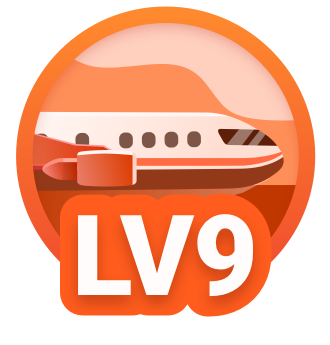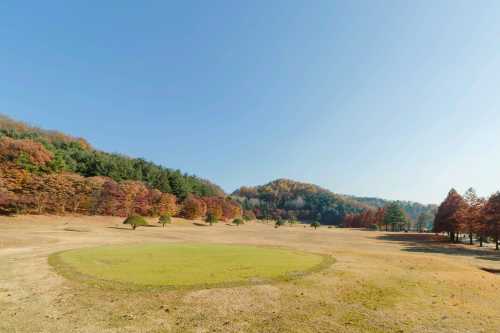Popular Trip Moments
A Stroll Through the Four Seasons Forest: Cheongju's Healing Spot – Midongsan Arboretum | Full of European charm, the quaint Cheongju café Paul & Juvi | A cozy retreat in the city, Ian Terrace Bakery Café | Positive Note: A cozy retreat near Chungbuk National University | A Garden of Seasonal Transformations: Café Tag 1 | A space where books and leisure coexist: Between Books Bookmark | 💦 A small resting place in the city, stone falls 🤍 | A Local's Recommendation for a Warm Meal: Cheongju Grandma's Chueotang | Urban Healing Terrace, Ian Terrace | 🎂 Dessert restaurant + healing space, Moshour | Healing Space with Waterfalls and Scenic Views: Stone Falls | 🌅 A sentimental resting place on the reservoir, Cafe Party 5 | A Pleasant Space Meets Clean Coffee at Cafe High | 🌿 A healing forest cafe flowing along the river 🌳 Cafe Leona | Orange-hued Sunshine, Oant Café | 15,000 yen round trip from Tokyo!? Go to Cheongju in Aero K! 🇰🇷 | Summer Hike and Korean Pancakes in Cheongju | A Feast of Fiery Flavors: Jjukal Hansang Osong Branch | Cheongju's trendy dessert spot, KeepKeep Cafe | 🐻 Cute shelter inside the terminal, Orchard Bear | ⛲ A shining break on a summer day, Tag One Cafe | 🏞️ Unobstructed view of Suamgol, OHJI Bakery | 🍚 Health and taste at once, Daesan Barley Rice | 🍞Cheongju cafe recommendation: A healthy bakery cafe at the foot of Gaposan 🥰 | Cafe Treebling: An Oasis in the Forest | A meal in a spacious setting at Eat Place 720. | 🌿 A hypermarket cafe full of hip plants in the city center | 🌟 A special meeting atmosphere, Eight Star Cafe | AIL Brunch Cafe: A Sunlit Brunch Spot in Osong | ☕ A comfortable rest in the city, Green Brownie Gyeongjeom
Popular Destinations
Malaysia Travel | Brisbane Travel | New Caledonia Travel | Coober Pedy Travel | Italy Travel | Victoria Travel | Yosemite Valley Travel | Hobart Travel | Kyoto Travel | Lanzhou Travel | Lijiang Travel | Guiyang Travel | Lima Travel | Jakarta Travel | Sydney Travel | Flores Travel | Wanxian Moutain Travel | Lanzarote Travel | West Dorset District Travel | Chiisagata District Travel | Jesolo Travel | Imphal Travel | Armacao Dos Buzios Travel | San Rafael Travel | Bacoor Travel | Yabuli Ski Resort Travel | Cornelius Travel | Stewart Township Travel | Easter Island Travel | Yizhou District Travel
Recommended Attractions at Popular Destinations
Attraction near Bangkok | Attraction near Manila | Attraction near Tokyo | Attraction near Taipei | Attraction near Hong Kong | Attraction near Seoul | Attraction near Kuala Lumpur | Attraction near Los Angeles | Attraction near Shanghai | Attraction near New York | Attraction near Shenzhen | Attraction near Osaka | Attraction near Singapore | Attraction near London | Attraction near Guangzhou | Attraction near San Francisco | Attraction near Beijing | Attraction near Macau | Attraction near Bali | Attraction near Jakarta | Attraction near Paris | Attraction near Ho Chi Minh City | Attraction near Istanbul | Attraction near Phuket | Attraction near Chicago | Attraction near Seattle | Attraction near Toronto | Attraction near Orlando | Attraction near Cebu | Attraction near Chiang Mai
Popular Attractions
Yulong Snow Mountain | Healesville Sanctuary | Tokyo Skytree | Skypark Sentosa by AJ Hackett | Shanghai Wild Animal Park | Perisher Ski Resort | Ayung River Rafting | Arthurs Seat Eagle - Base Station | Three Gorges Museum | Luna Park Sydney | ArtVo | Xi'an Bell Tower | Universal Studios Singapore | Sydney Zoo | Dujiangyan Scenic Area | Chiang Mai Night Safari | Adventure World | Golden Mask Dynasty Performance | Shotover Jet Queenstown | Biblioteca Pública Municipal Los Canapés | Sentiero Ardito Alberto | North Foy's Lake Park | Masjid Al - Anshor | NTR Garden Giant Wheel | Wörmke-Arena | Shri Sharada Varasiddhi Vinayaka Temple | Evangelische Festeburgkirche Frankfurt - Evangelische Festeburggemeinde Frankfurt/Main-Preungesheim | Shani Mandir | Parrocchia Santa Maria Immacolata | Huanglong National Scenic Area
Popular Restaurants in Cheongju
Syat Boro Japanese Restaurant | Hongik Donkatsu Cheongju 1 | Sya Onya o | King Cheon Fried Chicken With Spring Onions | Gimgane Cheongju Bukmunro Store | Switch | Kakao a Il | Kaen Gather | Bon Cheong | Bon Jeong | Chicken Floor | Nibbongnaebbong | Dream Gimbap | Apgujeong Bonggu Beer | Yeonggwang I Ne Noodles House | Popeyes | Pulmun | Seolhwa Hardwood Charcoal Chicken Ribs | Baskin-Robbins Chungbuk Osong | Nam Deul Ribs | Tous Les Jours | Montone | Yeonha Jeong | Gongwondang | Songhak Restaurant | Starbucks Ochang Science Industrial Complex | Original Gyodong Jjambbong | Dunkin Donut Cheongju Gagyeong Store | Bong Dragon Bulgogi | Genkki Pork
Popular Ranked Lists
Popular Must-Visit Restaurants in London | Popular Premium Hotels in Miyazaki Prefecture | Popular Best Things to Do in Heze | Top 15 Best Things to Do in Ganzi Prefecture | Popular Premium Hotels in Utrecht | Top 9 Best Things to Do in Sanming | Popular Best Things to Do in Hami | Popular Must-Visit Restaurants in Chiang Mai | Top 10 Must-Visit Restaurants in Bad Ischl | Popular Must-Visit Restaurants in Shanghai | Popular Must-Visit Restaurants in Dubai | Popular Premium Hotels in Iasi | Popular Best Things to Do in Huangshi | Popular Best Things to Do in Suining | Popular Must-Visit Restaurants in Osaka | Popular Premium Hotels in Lubelskie | Top 16 Premium Hotels in Lima Province | Popular Premium Hotels in Ilfov | Top 5 Best Things to Do in Luzhou | Popular Best Things to Do in Xing'an County | Top 3 Best Things to Do in Nanyang | Popular Must-Visit Restaurants in Xi'an | Popular Best Things to Do in Daqing | Popular Best Things to Do in Qinzhou | Popular Must-Visit Restaurants in Chaozhou | Popular Must-Visit Restaurants in Ho Chi Minh City | Popular Premium Hotels in West Coast | Popular Premium Hotels in Vastmanland | Popular Must-Visit Restaurants in George Town | Top 3 Best Things to Do in Zhoukou
Payment Methods
Our Partners
Copyright © 2025 Trip.com Travel Singapore Pte. Ltd. All rights reserved
Site Operator: Trip.com Travel Singapore Pte. Ltd.
Site Operator: Trip.com Travel Singapore Pte. Ltd.



















